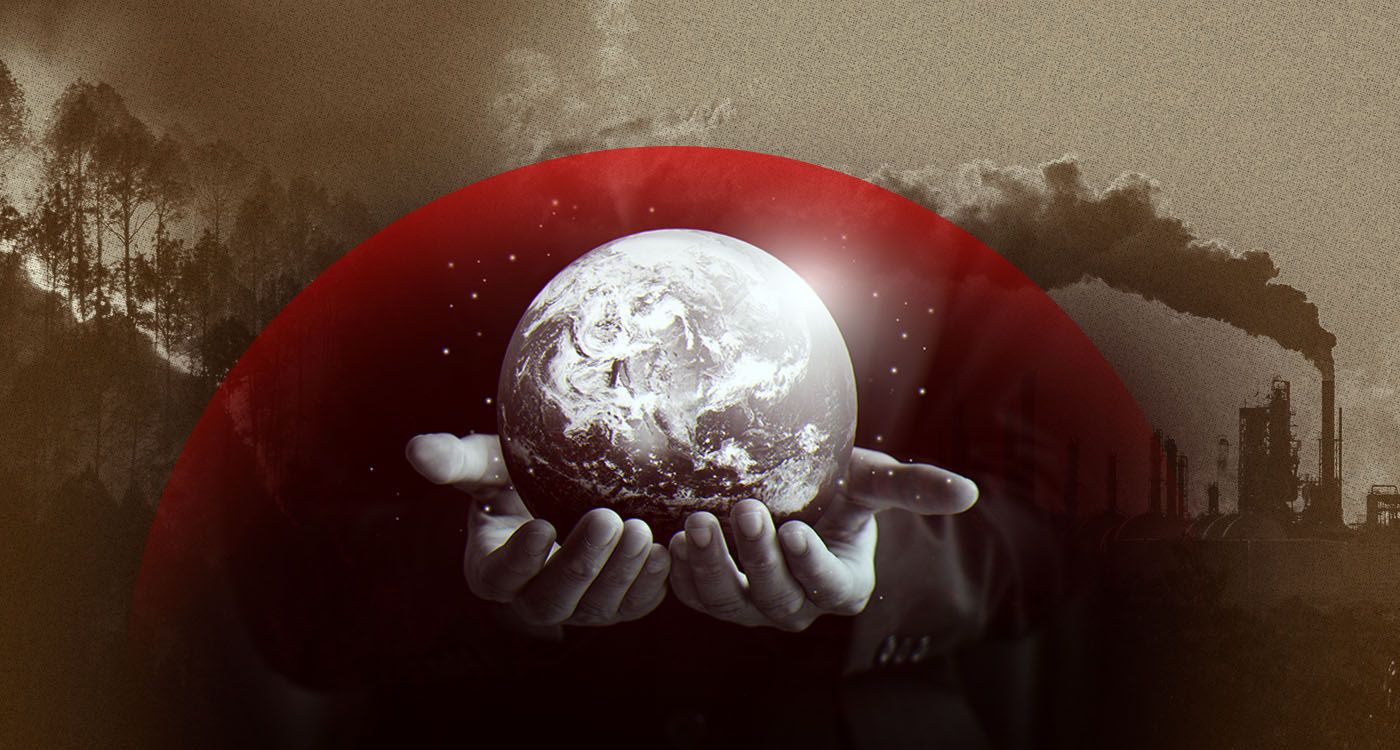
The current heatwave scorching Europe and the drought gripping Lebanon trace back to a single root cause: climate disruption driven by global warming and soaring CO₂ emissions—both reflecting what Pope Francis memorably called “despotic anthropocentrism,” a worldview that elevates humankind above all else, heedless of the rich diversity and delicate balance of Earth’s climate, ecosystems and resources.
European media speak of an “exceptional” heatwave, but “unprecedented” would be more accurate: temperatures have reached 46 °C in Portugal, the Eiffel Tower’s summit was forced to close, outdoor events were postponed, Alpine glaciers and the Greenland ice sheet are melting at alarming rates and Catalonia faced ferocious wildfires—claiming two lives and inflicting heavy agricultural losses.
Meanwhile, Lebanon endured an extraordinarily dry winter, with rainfall down by 70 %. As a result, the Litani River’s flow fell by half, vegetable and wheat crops suffered and forested areas weakened—leaving the country vulnerable to future fires and soil degradation.
In both Europe and Lebanon, the chain of causation is clear: greenhouse‑gas emissions accelerate global warming, which in turn sharpens local extremes. Around the Mediterranean, warmer sea‑surface temperatures amplify heatwaves. In Lebanon, projections show temperatures could climb another 4 °C by century’s end, while rainfall continues to decline.
Yet, climate denial among global leaders persists. For instance, President Trump notoriously dismissed climate change as a “hoax” invented by China. This reflects not only a dangerous rejection of scientific consensus but also a deeply flawed, almost primitive, notion of progress—one that clings to a lucrative comfort zone rather than confronts the urgent demands of environmental reality.
Climate skepticism takes many forms. Some deny that warming is happening at all. Others concede the planet is heating up but reject the role of human activity, insisting that it’s part of a natural cycle. Others acknowledge the facts but downplay their impact, suggesting the consequences are manageable or exaggerated. Each of these postures—denial, deflection and minimization—serves to delay meaningful action and protect entrenched interests.
The ‘Common Home’
As early as 2015, Pope Francis sounded the alarm in his globally impactful encyclical “Laudato si’,” warning against the degradation of the planet and pressing for action. He urged humanity to recognize that climate disruption is not merely a mechanical or scientific issue, but a profoundly human and collective one. It is our “common home” that is at stake—one we are all called to protect. While the tools to confront the crisis exist, the true challenge lies in raising awareness and taking decisive, unified action before it’s too late.
In a message marking the upcoming 10th World Day of Prayer for the Care of Creation (to be held on September 10), Pope Leo XIV, following in the footsteps of his predecessor, offers a stark assessment of global imbalances threatening both the planet and humanity. “In many parts of the world,” he writes, “it has become clear that our Earth is falling apart. Injustice, violations of international law and human rights, inequality, and greed are producing deforestation, pollution, and biodiversity loss everywhere.”
He also laments the persistent lack of awareness that environmental destruction does not impact everyone equally: undermining justice and peace disproportionately harms the poor, the marginalized and the excluded. The plight of Indigenous communities is particularly emblematic. These concerns powerfully echo “Laudato si’,” where Pope Francis linked the “cry of the Earth” with the “cry of the poor.”
Ecological Overshoot
At the heart of the awareness Pope Francis calls for lies a stark and measurable reality: ecological overshoot. This concept refers to the moment when humanity exceeds the Earth’s capacity to regenerate its resources and absorb its waste—particularly CO₂ emissions—within a single year. Also known as ecological deficit, it marks the point at which human consumption begins to erode the planet’s natural capital rather than live within its means.
A widely recognized illustration of this phenomenon is Earth Overshoot Day—the date each year when humanity exhausts the resources the Earth can sustainably provide for that year. After that point, we are effectively depleting the future to sustain the present. In 2025, Earth Overshoot Day is projected to fall on July 24.
‘Querida Amazonia’
With vivid imagery and heartfelt prose, he evokes the majesty of the Amazon River, drawing on the voices of South American poets to underscore the spiritual and cultural significance of the natural world. “Only poetry,” he writes, “can teach us to love nature without using it.”
“For Lo, the Winds Rise!”
Few have captured the power and mystery of nature as poetically as Saint-John Perse in his 1946 masterpiece “Winds.” There, he anticipates the vast and uncontrollable forces now shaking our planet.
“For lo, the Winds rise, O our simulacrum!
And all seas are stirred, and all tree-crests tremble!
Here is the great sea of breath! The wind that stirs the leaves,
The wind that shakes the skulls,
The wind that takes the books,
The wind that takes the beasts,
The wind that takes the men...”
In “Winds,” Saint-John Perse portrays the wind as a living, primal force—a reminder that nature is sovereign, untamed and older than human will. It cannot be possessed, only respected. By placing the wind at the heart of his poetic vision, Perse invites us to abandon illusions of mastery and instead recognize our rightful place: not as rulers, but as stewards and guests of the Earth.
In the Third Song, Perse writes,
“And the universe in the wind, like a great naked tree!
And the Earth in the wind, like a fruit without rind!
And man in the wind, upright, like a torch!”
This image of a man standing ablaze, like a living torch, serves as a powerful metaphor for climate disruption: in his despotic ambition to dominate nature lie both the spark and the substance of his own undoing—the flame, and the fuel it devours.



Comments